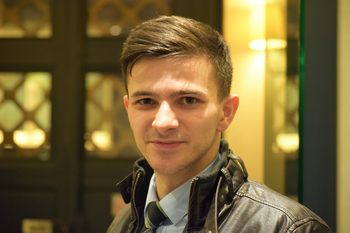Voice lessons, or singing lessons, are not only beneficial to professionals or adults, but will provide many benefits and vital foundation training to children as well.
But the question of what age always seems to crop up everywhere.
Let me start with a word of comfort.
It is completely safe for your child to undergo voice lessons.
The main thing for you to ensure is that it is with the right coach.
The age
Naturally, a child’s vocal cords are delicate and still developing. Therefore, it needs to be treated with much care during this phase.
The consensus amongst most teachers is that the years surrounding puberty is the best age to start.
Considering the fact that puberty varies for everyone, around 11 or 12 years old is a good guideline to use. This, however, is not set in stone and you as the parent will ultimately make the decision for your child.
How young is too young?
If they can comfortably focus for, say 30 minutes at a time, it is a good indication of whether they can start lessons sooner.
It will most probably be a lot harder for a younger child to focus and concentrate completely on a technical lesson than a pubescent.
Added to that, though, it is still best to seek the advice a professional voice coach who can give their opinion specific to your child.
Changes that come with puberty
During puberty, several changes are happening with relation to tone and voice quality.
Special care needs to be taken to work lightly and systematically during lessons with a distinct focus on vocal technique and subsequently becoming skilled at it. It is never a good idea to strain or force anyone's voice, regardless of age.
Should you feel that you would like to your child to start lessons at an even earlier age, keep these tips in mind while you find a suitable educator.
It is easier to cause vocal damage to a child than to the already developed cords of an adult, so it's often it is recommended to start younger children off on their musical journey by learning to play an instrument first, enabling them to learn notes and theory.
This knowledge can then be applied naturally when they start their voice or singing lessons.
A huge benefit of taking your child to voice lessons is that they will learn the correct skills to prevent injury early on in their life.
This leads us to the very important matter of the teacher.
The teacher
Since a child’s voice would still be developing in various ways, as a parent it is important to find the right teacher for your young one.
A good idea is to find a teacher with experience - and possibly even specific training or knowledge – in working with children.
Don't be shy to question the teacher on their methods and meet with them first. You want to ensure that you child feels connected and that the teacher is child-friendly. Some teachers even make use of modern tools like tablets and apps which make the learning experience a lot more fun and engaging for children.
Having their own teacher will also ensure that your child receives one-on-one attention specific to them and their voice, instead of being trained in a choir structure or as a group, for example.
With a teacher’s guidance, the focus can be placed on the middle voice rather than high and low notes specifically. A child does not yet have the same vocal range as that of an adult and, therefore, the middle voice should be the starting point.
During lessons, songs specific to your child’s comfort, preference, and vocal range can be taught and sung.
Need-to-know elements
As part of laying the vocal foundation, the teacher will also focus on various need-to-know elements. This is also something that you as a parent should keep in mind when you want to start your child off well before puberty and includes things like:
- ear training
- reading and understanding notes
- music theory
- correct breathing
- posture
- tongue placement
Boys versus girls
Boys and girls both experience changes in their voices due to development and hormones.
Before puberty, for both sexes, the vocal membranes are thin and tiny. Lower notes especially will be very hard for children to sing, as their cords are not developed yet to accommodate that.
Higher notes will more than likely be a bit easier for them to sing, but as mentioned, a teacher will aid in focusing on the middle range first and expanding as the times goes along.
For girls, vocal changes usually occur between the ages of 10 and 14. Vocal cords thicken and very often result in a lower and huskier voice.
For boys, thickening of the chords is also part of their process and this is what causes the voice to eventually become lower. Apart from the new lower range, he should still be able to sing in his previous, higher, range.
During puberty, and voice lessons, it is advisable for both boys and girls to sing lightly – not too loud and not too soft – in order to avoid damage.
Once again, this is something that your teacher and your child can establish together for the best possible results.

About the Author: Brian Collins
I am a classically trained singer who believes that every instrument requires maintenance - including the voice! I started my professional music studies at the age of 8 and competed in and won several local and state piano competitions. I graduated with honors and earned my Bachelor of Music Education in 2003, and since then I have studied with famous musicians and teachers around the world. I have also completed hundreds and hundreds of voice lessons, exploring various methods, and attended countless seminars on voice coaching for all ages.
